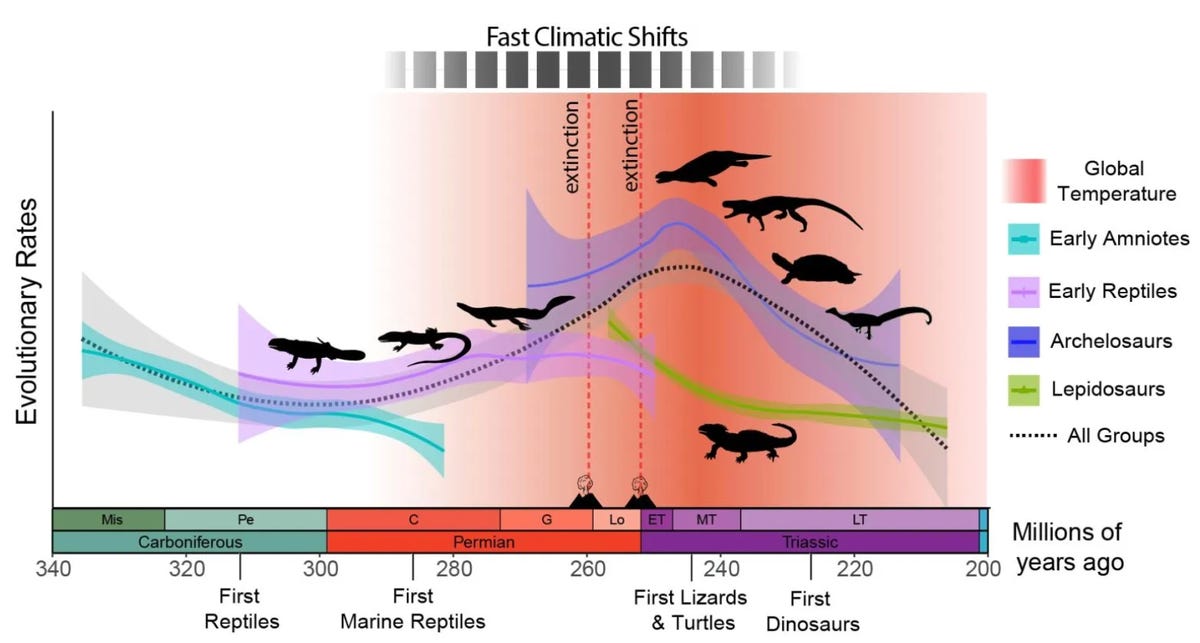A group of Harvard researchers have found that the Age of Reptiles, a time period of rapid evolution of reptile species, was precipitated by 60 million years of climate change and global warming.
Researchers in the Department of Organismic and Evolutionary Biology and the Museum of Comparative Zoology at Harvard University published a study in the Sciences Advances journal on Aug. 19 that revealed the Age of Reptiles began in connection with increasing global temperatures spurred by a series of climatic changes between the Permian and Triassic periods.

Researchers can use these findings of climate change-induced mass extinctions from the geological past to understand modern impacts of climate change.
Tiago Simões/HarvardSynapsids, the ancestors of mammals, were the dominant land vertebrates of the Permian Period. Previously, most paleontologists had attributed the explosion of reptile diversity in the Triassic Period (252-200 million years ago) to the mass extinctions of the Permian Period (298-252 million years ago) that wiped out many competitor synapsid species, giving reptilians the resources and habitats needed to make them the dominant group of land vertebrates.
But the new study challenges this assertion.
“Our results reveal that periods of fast climatic shifts and global warming are associated with exceptionally high rates of anatomical change in most groups of reptiles as they adapted to new environmental conditions,” senior author and Harvard Professor Stephanie E. Pierce said. “This process started long before the Permian-Triassic extinction, since at least 270 million years ago, indicating that the diversification of reptile body plans was not triggered by the P-T extinction event as previously thought, but in fact started tens of million years before that.”
Researchers can use such findings of climate change-induced mass extinctions from the geological past to understand modern impacts of climate change and global warming on organismal evolution, the researchers said. Previous studies into the impact of climate change on species had mostly centered on the impact on marine species and left out terrestrial vertebrates due to lack of data. Ongoing studies can help us understand the future of reptilian evolution.

